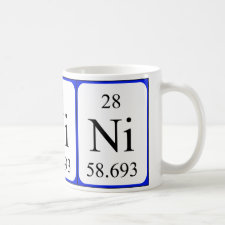
Authors: Seven F, Sahiner N
Article Title: Metal ion-imprinted hydrogel with magnetic properties and enhanced catalytic performances in hydrolysis of NaBH4 and NH3BH3.
Publication date: 2013
Journal: International Journal of Hydrogen Energy
Volume: 38
Issue: (35)
Page numbers: 15275-15284.
DOI: 10.1016/j.ijhydene.2013.09.076
Alternative URL: http://www.sciencedirect.com/science/article/pii/S0360319913022994
Abstract: Metal ion-imprinted (IIH) poly(2-acrylamido-2-methyl-1-propansulfonic acid) p(AMPS) hydrogels were prepared by using a free-radical polymerization technique in the presence of metal ions (M-á=-áCo (II) or Ni (II)). Using metal ion-imprinted hydrogels (IIHs), and non-metal ion-imprinted (NIH) hydrogels as template for the preparation of Co and Ni catalyst systems, the hydrolysis kinetics of NaBH4 and NH3BH3 were investigated. The catalytic performances of IIHs and NIHs were compared in terms of effect on hydrolysis kinetics of NaBH4 and NH3BH3. To increase the amounts of Co nanoparticles within p(AMPS) hydrogel for better catalytic activity, several reloading and reduction cycles of Co (II) ions were carried out, and the prepared p(AMPS)-Co composite catalyst systems were tested for hydrogen generation from the hydrolysis of NaBH4. As the number of Co (II) loading and reduction cycles increased, the amount of metal catalysts and the catalytic performance of composites increased. Kinetics studies were carried out on three times Co (II) ion loaded and reduced p(AMPS)-Co catalyst systems (containing 36.80 mg/g Co). Three time Co (II)-loaded catalyst systems provided very fast hydrolysis kinetics for NaBH4, and provided magnetic field responsive behavior. The hydrolysis reaction of NaBH4 was completed within 50 s, under the described conditions at 60 °C. It was demonstrated that the synthesized catalyst systems can be used ten times repetitively without significant loss of catalytic activity (86.5%)
Template and target information: cobalt ion, nickel ion, Co(II), Ni(II)
Author keywords: Metal ion-imprinted hydrogels, Hydrogen production technologies, Controlled hydrogen production via magnetic hydrogel-nanocatalyst system, Chemical hydride hydrolysis



Join the Society for Molecular Imprinting

New items RSS feed
Sign-up for e-mail updates:
Choose between receiving an occasional newsletter or more frequent e-mail alerts.
Click here to go to the sign-up page.
Is your name elemental or peptidic? Enter your name and find out by clicking either of the buttons below!
Other products you may like:
 MIPdatabase
MIPdatabase









